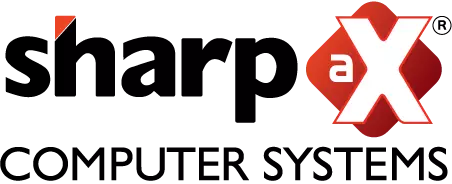
A management consultant recently asked us a series of questions about the Sharp-aX business:
1) How important are each of these performance indicators to the running of Sharp-aX and why?
– Speed? “Speed of support is essential in our industry – customers buying into us are in it for the long term and it is essential that they have reliable ongoing support.”
– Dependability? “Again essential – we have to be here officially 9 to 5 but we offer much more in after care and concern.”
– Flexibility? “Vital, some customer work 24/7 – for example in the food industry – so we need to make out of hours service available and good value.”
– Quality? “The quality of our software both at the time of purchase and ongoing is vital to ensure their business processes stand up.”
– Cost? “The Sharp-aX software and ongoing support costs have to be competitive but it is never the critical factor as long as the customer feels they have a good deal.”
2) How important are each of these to Sharp-aX’s success in the marketplace and why?
Quality? “Has to be the best on the market with ongoing development – customers want the best.”
Dependability? “Customers are totally and utterly reliant on our software & support for the survival of their company for margin watching, stock control and efficient accounting.”
Flexibility? “Our software is customisable for each PC/person – so sales people want their screens, accounts want theirs etc.”
Speed? “A must for cash and carry customers – if service is too slow their customers will go elsewhere.”
Cost? “Important – all companies have budgets but easily qualified with good reliable software and service.”
3) How does Sharp-aX monitor and manage waste in the company?
- Defects (products that don’t work, mistakes made etc). “We employ our own professional testers for our software written by our own in house developers – subsequent testing via trainers and support people (this is particularly beneficial in that the trainers and support people learn the new software whilst testing immediately prior to our official releases.”
- Overproduction (making too much or too early – means that inventory is high and can waste money storing things). “Because of our stock control software – we nor our customers should ever have too much stock. We can run daily, weekly, monthly low level stock reports to avoid this.”
- Waiting time not being used effectively – e.g. staff who are under-utilised, systems that waste man hours because they’re not efficient, as well as time spent waiting for one department to complete work before another can start, or time spent waiting for deliveries from suppliers etc. “We have always generated our staff levels against orders taken. For the relevant department – the more orders we take, the more support staff we need to look after them.”
- Transporting (e.g. the costs spent transporting products from one place to another, time spent by staff travelling to meet customers, prospects or suppliers; or perhaps any costs incurred /time spent managing staff who are based abroad?) “With regard to support – all handled remotely. With regard to hardware deliveries – cost of travel expenses are covered in the charge however, better to supply this element at no profit to benefit from the customer visit feedback. With regard to Sales – no alternative, customers want to see a demonstration of the software but more importantly want to meet the person/company who is going to be responsible for their ongoing survival.”
- “Movement (this is about people spending time moving around the office, e.g. between departments, or because the storeroom is on a different floor to the workspace. It also includes things like heavy objects being stored on the floor, when they could be kept at waist height to avoid exertion and stress of lifting them). “Hardware is relatively light and easy to move – all our stock is deliberately on the ground floor so that vans back up to our double doors with minimal distance to our large well managed store room.”
- Inappropriate processing (unnecessary techniques used, working to tolerances that are too tight, doing things that the customer doesn’t need, or using really big machines to do everything which creates scheduling issues, where several small machines would be more efficient). “We do nothing for a customer outside of support without first quoting, an order and then a mutually sensible time agreed
4) Inventory – does Sharp-aX operate a “Just in Time” policy with regard to ordering supplies?
“New software mods are quoted, ordered and scheduled for next release – within the 3 to 4 times per year released. Should a customer suffer a system down – then we would immediately turn all efforts to resolving remotely – 99% normal, 1% would be where we have to attend site but this would be hardware, not software related, and the customer is delighted for our assistance which they pay for. Our software releases have to be planned and scheduled well in advance.”
5) Have there been any ways that Sharp-aX has proactively reduced waste in the business, in the last 12 months?
“We have little waste other than a salesman arriving on site when the customer has forgotten the appointment despite being called the day before. Our salesmen spend many hours on the road but we hope to find ourselves in a position whereby we gain sales more closer to home.”
6) Have any of those waste reductions been motivated by economic reasons (i.e. saving money)?
“A salesman is not allowed to visit an area for one appointment – he must have a least 2 and then he must call on companies in that area, minimum dropping of literature packs to justify the time.”
7) Which types of waste are most costly to the business?
“We do not have waste as such – we only have the constant need to use sales travel time more efficiently.”
8) Which areas of waste are most easily tackled and how?
“Sales living on their patch, reducing their patch area, working their patch harder. Do everything possible to get the customer and colleagues to visit our offices.”
9) What savings could Sharp-aX make through reducing waste?
“Petrol, car mileage, time.”
10) Are any of the wastes irrelevant to the business?
“Sales travel should also be seen as an investment – visiting companies, spreading our company name is never a waste!”
11) Are there any areas of waste which don’t have an obvious financial impact? e.g. inefficient processes, which if addressed would speed up delivery but not increase sales?
“Everything has a financial impact but should also be seen as an investment as above.”
12) How is Sharp-aX’s waste impacted by the importance it places on each of the performance indicators?
– Speed “Not affected.”
– Dependability “Not affected.”
– Flexibility “Not affected.”
– Quality “Not affected.”
– Cost “The cost of sales is affected by the number of visits to the customer site and travel expenses but a very necessary part of our sales technique.”
Posted: 26th June 2017
Posted in:
Blog, Sharp-aX



















